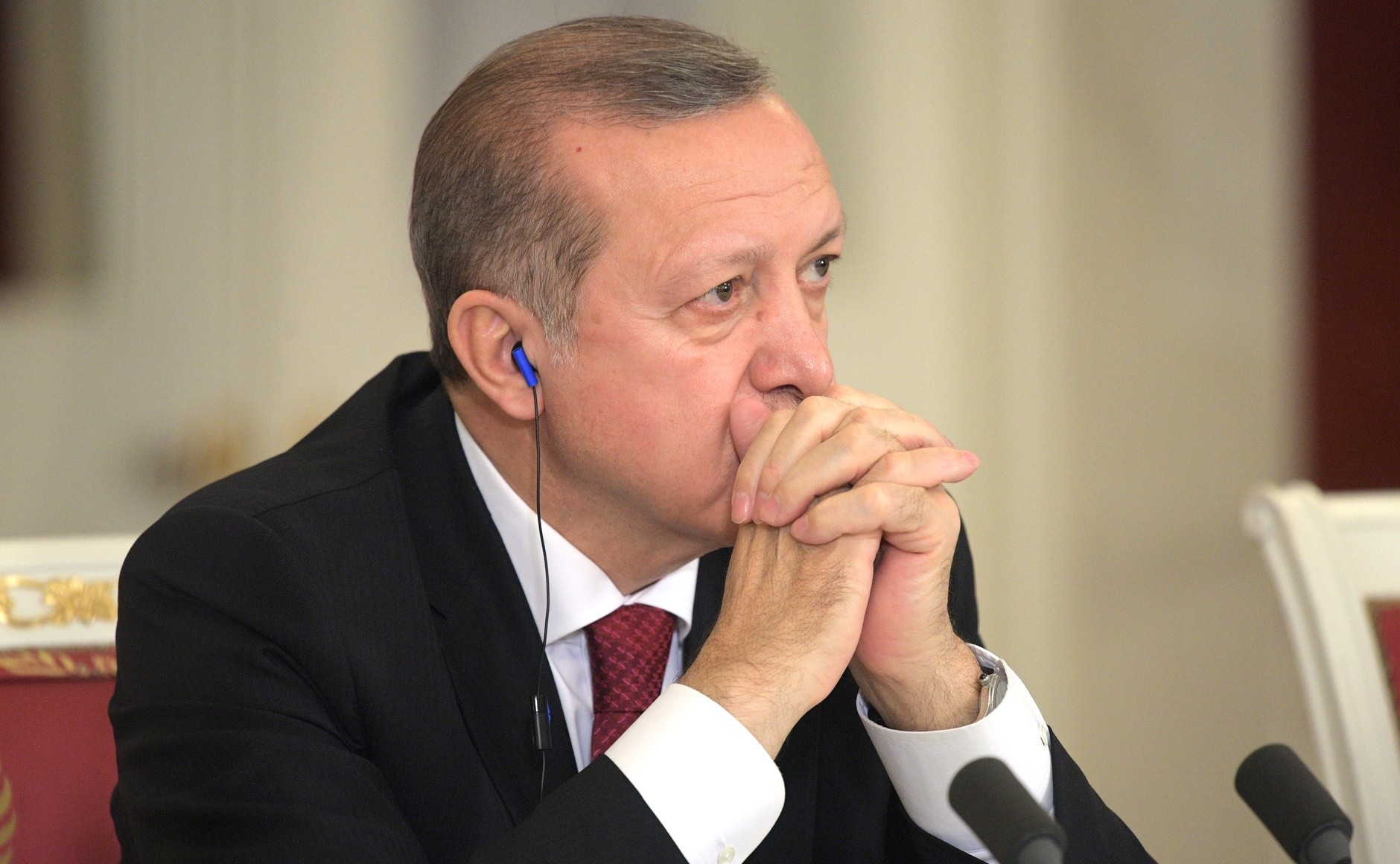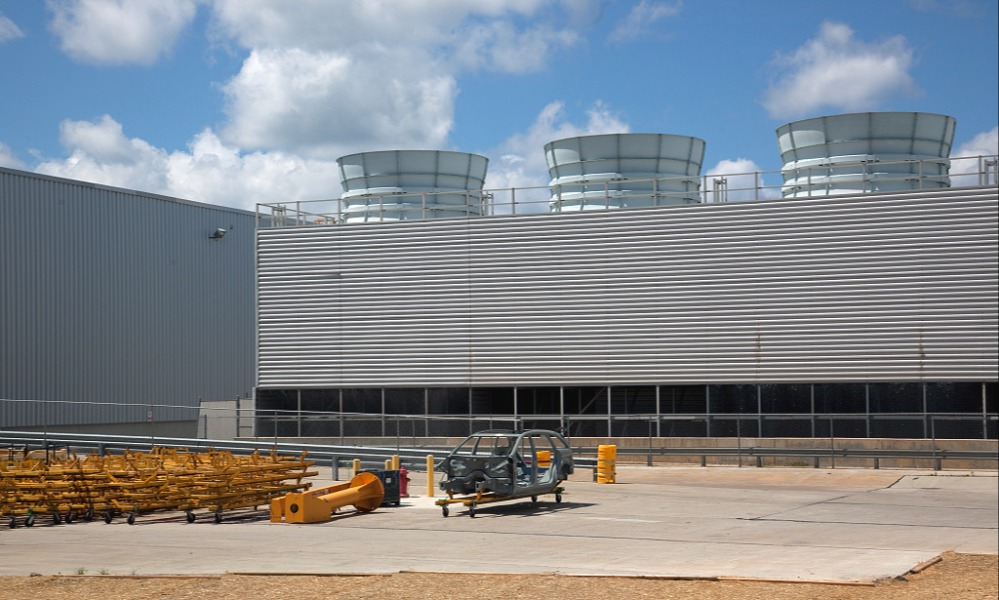Iraqi Kurds Return to Polls after Independence Referendum, Iranian Missiles Target Syria, Turkey Tries to Mend Ties with Germany
Kurdish Elections Marred by Apathy and Accusations of Fraud

Published by The Lawfare Institute
in Cooperation With

Kurdish Elections Marred by Apathy and Accusations of Fraud
Iraqi Kurds returned to the polls on Sunday to vote on parliamentary candidates for the Kurdistan Regional Government, the semi-autonomous government of northern Iraq. The vote comes one year after Kurdistan’s disastrous independence referendum; though that initiative passed with more than 92 percent support, it prompted Kurdistan’s neighbors to move swiftly to isolate the territory and Iraqi troops to seize control of contested areas. By the end of October 2017, the pressure on the Kurdish leadership forced President Masoud Barzani, who had led the campaign for the independence referendum, to resign.
Since then, divisions have deepened between the two main factions in Iraqi Kurdish politics—Barzani’s Kurdish Democratic Party (KDP) and the rival Patriotic Union of Kurdistan (PUK), which cooperated with the Iraqi government’s post-referendum advance last fall. As the Washington Post notes, “For the first time since Iraq began holding elections in 2005, Kurds have nominated competing politicians for the post of president of Iraq, which is reserved for a Kurd under Iraq’s informal power-sharing agreement.” Both the KDP and PUK have proposed their own candidate; a vote to decide the issue was scheduled for Monday but postponed because of the parties’ deadlock. A third party, the opposition Gorran Movement, reportedly went into Sunday’s elections optimistic about its chances amid the two main parties’ infighting.
The election appears to have been a disappointment for all involved. Observers reported low turnout at the polls, as political apathy and disillusionment kept people home. Even before the polls closed, all groups were leveling accusations of fraud. PUK officials said they would not accept results from several districts under KDP control, accusing the KDP of rigging the vote. The Gorran Movement issued a statement claiming the PUK had allowed people to vote with fraudulent documents and took “measures that are a serious threat to the credibility of the parliamentary election.” The KDP also accused the PUK of fraud. No evidence has been presented to support any of these claims, but Reuters reported irregularities in the vote and, in one case, a group of armed men barging into a polling place and stealing the ballots after being prevented from voting.
The divisions in northern Iraq mirror divisions farther south. The Iraqi government in Baghdad remains stalemated over the formation of a new governing coalition as anti-corruption protests continue to reverberate in the south. Last week, U.S. officials announced it would be withdrawing U.S. personnel from the consulate in Basra after several rockets were launched at the building during protests; Secretary of State Mike Pompeo blamed Iran for the attack, though protesters also targeted Iranian facilities during riots last month. For the first time in years, mortar shells also fell in Baghdad’s Green Zone, the fortified district where many government and diplomatic offices are located. The New York Times reports that there has also been a rash of murders apparently targeting prominent young women, including a popular social media personality and a women’s rights activist.
Iran Launches Missiles at Syria, Sends Message to United States
Iranian media reported that the Iranian Revolutionary Guard Corps launched missiles and conducted follow-up drone strikes on militant targets in Syria in retaliation for the attack on a military parade in Ahvaz on Sept. 22. Ahvaz National Resistance, a coalition of Arab separatists, claimed responsibility for the attack; a second claim from the Islamic State was widely seen as being less credible. As NBC News reports, Iran’s retaliatory strike “adds to confusion over who carried out the assault” given that Ahvazi separatists “have not been known to work with IS in the past.”
Iranian reports made clear that a secondary message was directed to the United States. An Iranian broadcast of the missile launches claimed that the attackers had received support from the United States, Israel, and Saudi Arabia. “In a few minutes, the world of arrogance—especially America, the Zionist regime and the Al Saud—will hear the sound of Iran's repeated blows,” one newscaster said.
Iran’s message may be in response to the Trump administration’s ramped up rhetoric. In addition to its withdrawal from the Joint Comprehensive Plan of Action and reimposition of sanctions, Secretary of State Mike Pompeo met with diplomats from the Gulf states on the sidelines of the UN General Assembly last week to make final preparations for the launch of the Middle East Strategic Alliance (MESA), which some have called the “Arab NATO.” According to a report from Emirati paper The National, MESA will be launched in January with nine member states—Saudi Arabia, the United Arab Emirates, Kuwait, Bahrain, Qatar, Oman, Egypt, Jordan, and the United States. Iran is the “number one threat” for MESA, Tim Lenderking, U.S. deputy assistant secretary of state for Arabian Gulf affairs, told The National. U.S. officials have also said in recent weeks that U.S. troops will remain in Syria indefinitely as a bulwark against Iran’s presence in the country and threatened to target the Assad regime with new sanctions that would increase the burden on its partners in Tehran and Moscow. “We will make it our business to make life as miserable as possible for that flopping cadaver of a regime and let the Russians and Iranians, who made this mess, get out of it,” Jim Jeffrey, the U.S. special representative for Syria, said last week.
German-Turkish Tensions Still Apparent during Erdogan’s Visit
Turkish President Recep Tayyip Erdogan visited Germany last week in an effort to patch up relations between the two countries. Turkish-German relations soured in the run-up to Turkey’s constitutional referendum that granted Erdogan sweeping powers as president. When Germany curtailed Turkish officials’ ability to campaign for the referendum in Turkish expat communities in Germany last year, Erdogan lashed out, making a point in his stump speeches to compare Germany’s actions to “Nazi practices of the past.” The feud culminated with Germany’s decision in June 2017 to withdraw their forces participating in counter-Islamic State operations from Turkey’s Incirlik airbase to an alternate facility in Jordan.
Since then, Erdogan has assumed the expanded powers that he had coveted for years, but struggled with rising tensions with Washington and an economic crisis that he has been reluctant to address—Turkey’s central bank finally raised the interest rate last month, arresting the lira’s slide, despite opposition from Erdogan. “What Mr. Erdogan needs is economic buttressing, and what Ms. Merkel needs is for Turkey to remain economically stable and for the Turkish leader to continue to stem the tide of refugees and migrants that pass through his country from war-torn nations—be they Syria, Iraq or Afghanistan—an issue that has become the chancellor’s Achilles’ heel,” the New York Times reported last week in a preview of Erdogan’s trip.
After two meetings with Chancellor Angela Merkel in Berlin, Erdogan said that both sides were moving toward rapprochement. The two leaders reportedly made plans for a four-nation summit on Syria, to be attended by Erdogan, Merkel, French President Emmanuel Macron, and Russian President Vladimir Putin. In Cologne, where he attended the opening of the largest mosque in Germany, Erdogan called the trip “very successful.” “I emphasized that, putting aside our differences of opinion, we have to focus on our common interests,” he said. “We will enhance our cooperation in every field, ranging from the struggle against terrorist organizations to the refugee crisis, from conflict to trade wars.”
But the trip also included uncomfortable sparring over issues of human rights. Merkel was conspicuously absent from the state dinner held for Erdogan; instead, the dinner was attended by German President Frank-Walter Steinmeier, who used the occasion to criticize Turkey’s crackdown in the wake of the 2016 coup attempt. “Eighty years ago, Germans found refuge in Turkey—today, a worryingly large number of people from Turkey are seeking refuge here in Germany from the growing pressure on civil society,” Steinmeier said. In his own speech, Erdogan accused Germany of hosting “thousands” of terrorists. “Thousands of members of PKK, which is recognized as a terror group by the EU, walk freely in Germany,” he said. “The FETO terror organization [Gulen movement], unfortunately, hundreds, thousands of them are walking freely in Germany.”
Tensions between Turkey and the United States have also continued over Turkey’s trial of Andrew Brunson, an American pastor. In a speech to the Turkish parliament on Monday, Erdogan said his government would resist proposed U.S. sanctions on Turkey, calling U.S. policy a “crooked understanding, which imposes sanctions using the excuse of a pastor who is tried due to his dark links with terror organizations.”





